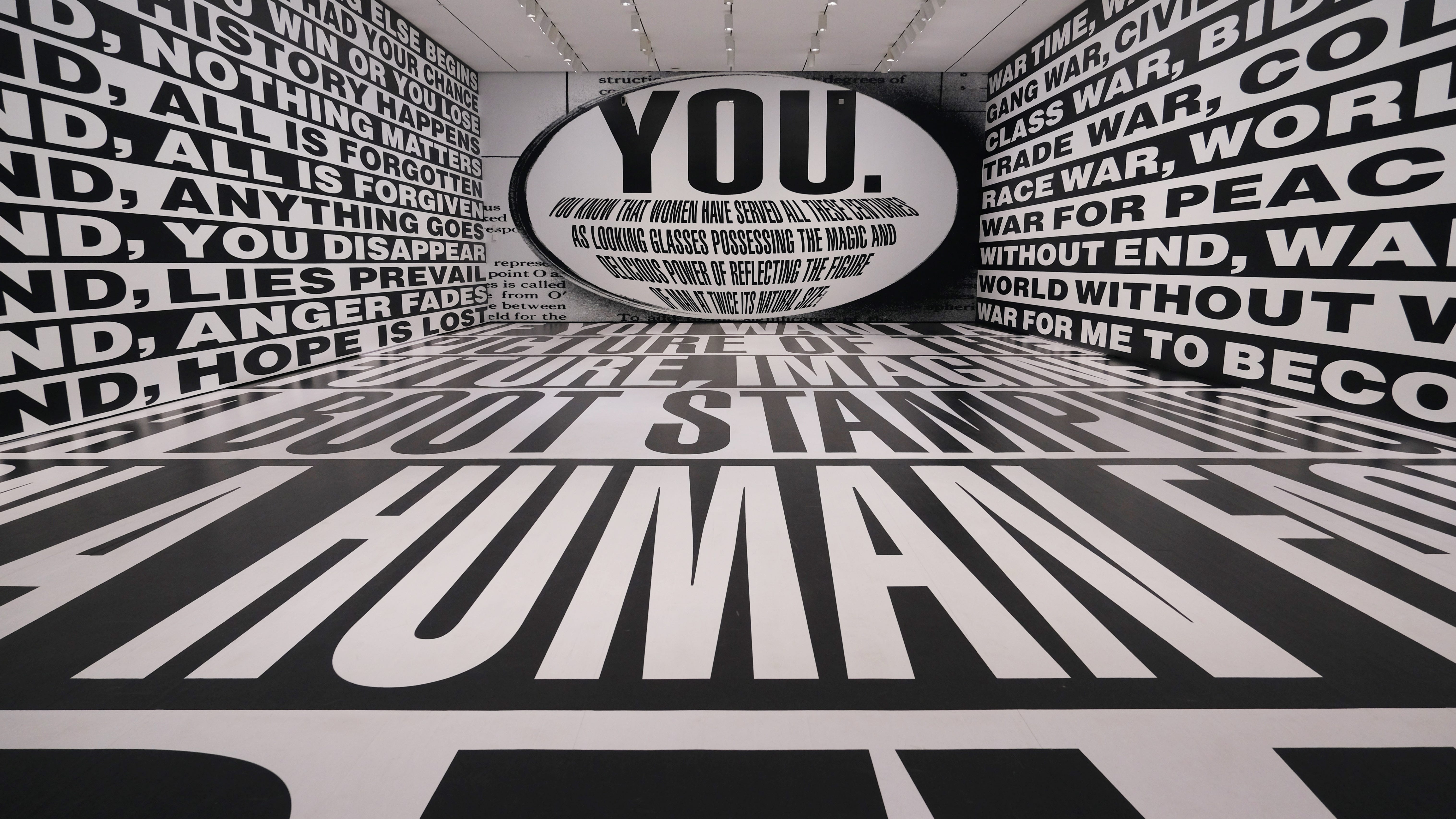Barbara Kruger: Thinking of You. I Mean Me. I Mean You. (Capsule Review)


[Original publication: No Proscenium, 5/24/22]
Masked and tired, I sat on a bench watching the video. I have a hollowness from recent years; my chest cavity feels cratered and clawed out. The video’s editing was fast and strange: photos of adorable cats in toilet bowls spliced with declarative text and violent landscapes. It was a fantastical, relentless assault — mostly harrowing, sometimes funny, and so…familiar.
Get Laura Hess’s stories in your inbox
Join Medium for free to get updates from this writer.
SubscribeSubscribe
The familiarity was terrifying.
Barbara Kruger’s exhibition at the Los Angeles County Museum of Art is a massive showcase of her video installations, audio soundscapes, tabloid-style pop culture collages, and large-scale, austere text (in some cases wrapping entire surfaces in printed vinyl). With works from the 1980s to the present, the scope of the exhibition is impressive and the audacity of her art remains potent. Kruger’s work has always possessed a no-holds-barred, pressurized velocity; what’s different, and unnerving, is how familiar the brutalization feels.
The seminal piece Untitled (Your body is a battleground) has been expanded, both in construction and meaning. Originally created during a wave of anti-choice laws, Your body is a battleground was designed for the 1989 Women’s March on Washington in support of reproductive freedom. Now presented at LACMA as a video installation, the artwork is transformed into a sonic and cultural trebuchet.
That first video banks Kruger’s unyielding poetry against quotes by Kendrick Lamar and Voltaire (“Those who make you believe absurdities can make you commit atrocities”). With the rise of “alternative facts,” we are living in a decay of ripe absurdities and fermenting atrocities. Kruger acknowledges our “gift for cruelty” and “the war for me to become you.” Experiencing her body of work feels like putting on an old pair of shoes, molded to collapsed arches. The agonizing resonance of her work combined with a current ease of understanding is devastating. It shouldn’t feel this known.